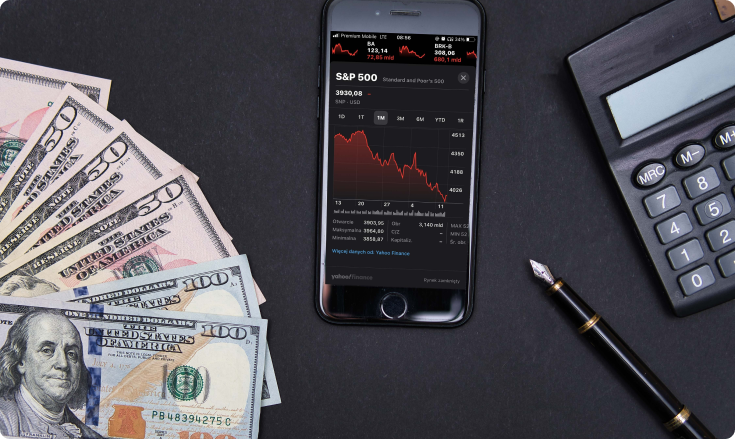What Is The Leverage In Trading?

Leverage is a trading mechanism that investors can use to increase their exposure to the market by allowing them to pay less than the full amount of the investment.
Leverage is the number one benefit of modern online trading. Investors use leverage broadly when trading with CFDs (Contract for Differences).
An investor can trade CFDs across various financial assets (foreign exchange, indices, commodities, stocks and cryptocurrencies).
Without leverage, there’s little you can do, but let’s look it up closer.
What is leverage?
The concept of leverage is simple. You borrow capital from a broker to open a chosen position and start trading. With the funds you’ve invested, plus the funds that a broker landed you, you increase your chances of earning more.
This investment strategy of using borrowed capital to increase the potential return of an investment (ROI) is called leverage.
Companies use leverage to finance their assets—instead of issuing stocks to raise capital, companies can use debt to invest in business operations in an attempt to increase shareholder value.
Investors use leverage to increase their buying power.

Limit Prime offers you different leverage ratios for different assets.
Clients trading from Montenegro:
Currency pairs - 1:100
Stocks - 1:20
Indices - 1:50
Cryptocurrencies - 1:5
USOIL & UKOIL - 1:10
Gold & Silver - 1:100
Other commodities - 1:20
Clients trading from other countries:
Currency pairs - 1:100/1:200
Stocks - 1:20
Indices - 1:50
Cryptocurrencies - 1:5
USOIL & UKOIL - 1:10
Gold & Silver - 1:150
Other commodities - 1:50
Example of trade with leverage
To make it easier to understand, here’s an example.
Let’s say you decided to invest in and you picked your first position. Limit Prime offers you leverage in the ratio of 1:100 (for currency pairs). One-hundred-to-one leverage means that for every $1 you have in your account, you can place a trade worth up to $100. This ratio is a typical amount of leverage offered on a standard lot account. The typical $100 minimum deposit for a standard account would give you the ability to control $10,000.

Leverage is a “double-edged sword” because with some brokers you can lose more than you deposited.
However, with Limit Prime you can never lose more than you deposited because we offer our clients negative balance protection.
Stocks trading. Let’s say you want to invest in Tesla stocks. You think that the price of Tesla stocks will increase and so you decide to buy them. The price of one Tesla stock (at the time of writing this article) is approximately $850 and you want to buy 10 stocks.
Without leverage, you would need to deposit $8,500 ($850 x 10) in order to buy 10 stocks. But, because of leverage 1:20, you will only need to deposit 20 times less, which is $425 ($8,500 / 20).
Tesla $850 x 10 stocks = $8,500
1:20 leverage ratio
$8,500 / 20 = $425 margin amount
Conclusion
The leverage ratio is set by a broker - the bigger the leverage is, the greater the possibility of higher earnings and losses. Investors use leverage to increase their buying power.
When trading with leverage, you should always be careful. Along with the chance of higher profits goes also the risk of losing a higher amount of money.
Choose companies that protect you from negative balance so that you never lose more than the capital you deposited.
Sources Consulted:
1. Leverage trading: How does leverage work? https://www.cmcmarkets.com/en-gb/trading-guides/what-is-leverage-trading (2021)
2. Hayes, A. Leverage. https://www.investopedia.com/terms/l/leverage.asp (2020)
3. Lioudis, N. Forex leverage: A double-edged sword. https://www.investopedia.com/articles/forex/07/forex_leverage.asp (2021)
4. Leverage and margin explained. https://www.babypips.com/learn/forex/leverage-defined (2010)
LimitPrime © 2026
Begin to invest and
start earning today!
Categories
Do you need personalized assistance?
READ MORE INTERESTING ARTICLES

Diversificationnoun the action of diversifying something or the fact of becoming more diverse. a trading strategy that reduces risk. D...
Read More
As any risk disclosure will tell you, trading financial instruments put the trader at risk of losing some or all of their allocated cap...
Read More
What are indices?Indices measure the performance of a group of stocks, bonds or other investments. These investments are often grouped...
Read More